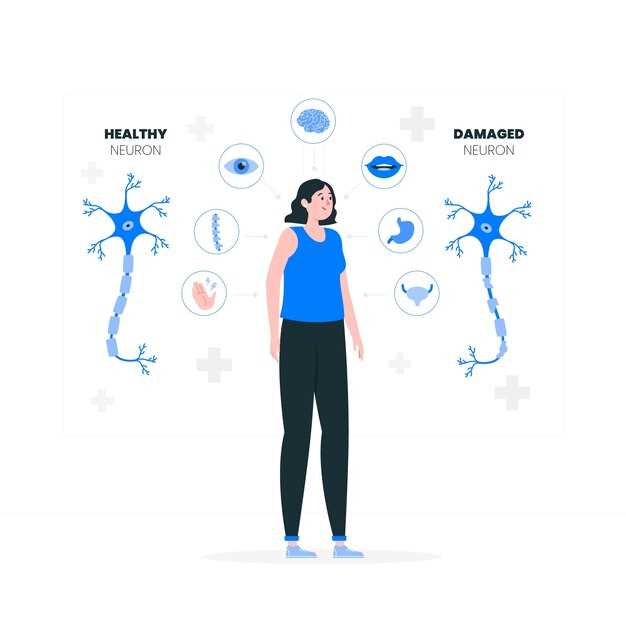
Atorvastatin is a widely prescribed medication that belongs to a class of drugs known as statins. It is primarily used to lower cholesterol levels in individuals who have high levels of LDL cholesterol, also known as “bad” cholesterol.
When taken regularly and as prescribed by a healthcare professional, atorvastatin can have numerous positive effects on the body. One of its main mechanisms of action is inhibiting an enzyme called HMG-CoA reductase, which plays a crucial role in the production of cholesterol in the liver.
By lowering cholesterol levels, atorvastatin can reduce the risk of developing cardiovascular diseases such as heart attacks and strokes. It does this by preventing the buildup of plaque in the arteries, which can lead to blockages and restricted blood flow.
In addition to its cholesterol-lowering properties, atorvastatin has also been shown to have anti-inflammatory effects. Chronic inflammation is believed to contribute to the development and progression of many diseases, including heart disease. By reducing inflammation, atorvastatin may help protect against certain cardiovascular conditions.
Atorvastatin is generally well-tolerated, but like any medication, it can have side effects. Common side effects include muscle pain, digestive issues, and an increased risk of developing diabetes. It is important to discuss any concerns or potential side effects with a healthcare professional before starting treatment.
Overall, atorvastatin is a valuable medication that can effectively lower cholesterol levels and reduce the risk of cardiovascular diseases. However, it should always be used under the guidance of a healthcare professional and in conjunction with a healthy lifestyle, including regular exercise and a balanced diet.
Benefits of Atorvastatin
Atorvastatin, a type of medication known as a statin, is commonly prescribed to help lower cholesterol levels in the body. By reducing cholesterol levels, atorvastatin can have several important health benefits:
- Reduces the risk of heart disease: High cholesterol levels are a major risk factor for heart disease. Atorvastatin works by inhibiting an enzyme in the liver that plays a key role in the production of cholesterol. By lowering cholesterol levels, atorvastatin can help decrease the risk of heart disease, heart attacks, and strokes.
- Improves overall cardiovascular health: Atorvastatin has been shown to not only lower cholesterol levels but also to reduce inflammation in the blood vessels and improve their function. This can help improve overall cardiovascular health and reduce the risk of cardiovascular events.
- Prevents further progression of atherosclerosis: Atherosclerosis is a condition in which plaque builds up in the arteries, leading to a narrowing and hardening of the blood vessels. By reducing cholesterol levels, atorvastatin can slow down or even reverse the progression of atherosclerosis, reducing the risk of complications such as heart attacks and strokes.
- May have additional benefits: Some studies suggest that atorvastatin may have additional benefits beyond its cholesterol-lowering effects. These potential benefits include reducing inflammation in the body, improving endothelial function, and even reducing the risk of certain types of cancer. However, more research is needed to confirm these potential benefits.
Overall, atorvastatin is an important medication for individuals with high cholesterol levels. By effectively lowering cholesterol, it can significantly reduce the risk of heart disease and improve overall cardiovascular health. However, it is important to note that atorvastatin should only be taken under the supervision of a healthcare professional and alongside lifestyle changes such as a healthy diet and regular physical activity.
Side Effects of Atorvastatin

While atorvastatin is generally a well-tolerated medication, there are potential side effects that you should be aware of. It is important to note that not everyone experiences these side effects, and they may vary in severity.
Common Side Effects
Some common side effects of atorvastatin include:
- Muscle pain: Atorvastatin can sometimes cause muscle pain, weakness, or tenderness. If you experience any of these symptoms, it is important to inform your healthcare provider.
- Headache: Headaches are a possible side effect of atorvastatin. If you experience severe or persistent headaches, you should consult your doctor.
- Stomach pain: Some individuals may experience stomach pain, nausea, or diarrhea while taking atorvastatin. If these symptoms become severe or persistent, it is advisable to seek medical advice.
Rare but Serious Side Effects
While rare, some individuals may experience more serious side effects while taking atorvastatin. These can include:
- Liver problems: In rare cases, atorvastatin may cause liver problems, including elevated liver enzyme levels. If you experience symptoms such as jaundice (yellowing of the skin or eyes), dark urine, or persistent fatigue, it is important to seek medical attention immediately.
- Allergic reactions: Although rare, some individuals may develop an allergic reaction to atorvastatin. Signs of an allergic reaction may include hives, difficulty breathing, or swelling of the face, lips, tongue, or throat. If you experience any of these symptoms, seek medical help immediately.
- Memory problems: While rare, some individuals may experience memory loss or confusion while taking atorvastatin. It is crucial to discuss any changes in cognitive function with your healthcare provider.
If you experience any side effects while taking atorvastatin, it is essential to notify your healthcare provider. They can help determine if the benefits of the medication outweigh the potential risks and may be able to suggest alternative treatments or adjust your dosage.
Remember: This is not an exhaustive list of side effects, and it is crucial to consult the prescribing information and your healthcare provider for a comprehensive understanding of the potential risks associated with atorvastatin.
Dosage Recommendations
When it comes to taking atorvastatin, it’s important to follow the recommended dosage guidelines to ensure safety and effectiveness.
Initial Dosage

The starting dose of atorvastatin is typically 10 mg once a day for most people. However, your healthcare provider may adjust the dosage based on factors such as your current cholesterol levels, medical history, and other medications you may be taking.
Titration
After starting atorvastatin, your healthcare provider may choose to increase the dosage if necessary. This is known as titration. The goal is to find the lowest effective dose that effectively lowers your cholesterol levels without causing significant side effects.
Maximum Dosage
The maximum recommended daily dose of atorvastatin is 80 mg. However, this higher dosage is generally reserved for individuals with severe hyperlipidemia or those who have not achieved adequate cholesterol control with lower doses.
It’s important to note that dosage recommendations may vary depending on individual factors, and it’s always best to consult with your healthcare provider before making any changes to your medication regimen.
Precautions for Taking Atorvastatin
Before starting to take Atorvastatin, it is important to consider certain precautions to ensure the safe and effective use of the medication:
1. Inform Your Doctor
Before starting Atorvastatin, inform your doctor about any other medications you are currently taking, including over-the-counter drugs, vitamins, or herbal supplements.
2. Medical Conditions
If you have any history of liver disease, kidney disease, diabetes, or thyroid problems, make sure to inform your doctor before taking Atorvastatin.
3. Allergies
Inform your doctor if you have any known allergies to Atorvastatin or any other medications.
4. Pregnancy and Breastfeeding
Atorvastatin should not be used during pregnancy or while breastfeeding, as it may harm the baby. If you are pregnant or planning to become pregnant, consult your doctor for alternative medications.
5. Alcohol
Avoid consuming excessive amounts of alcohol while taking Atorvastatin, as it may increase the risk of liver problems.
6. Muscle Pain
If you experience unexplained muscle pain, tenderness, weakness, or fatigue while taking Atorvastatin, consult your doctor immediately as it may be a sign of a rare but serious side effect called rhabdomyolysis.
Overall, it is important to follow your doctor’s instructions and report any unusual or severe side effects while taking Atorvastatin.
